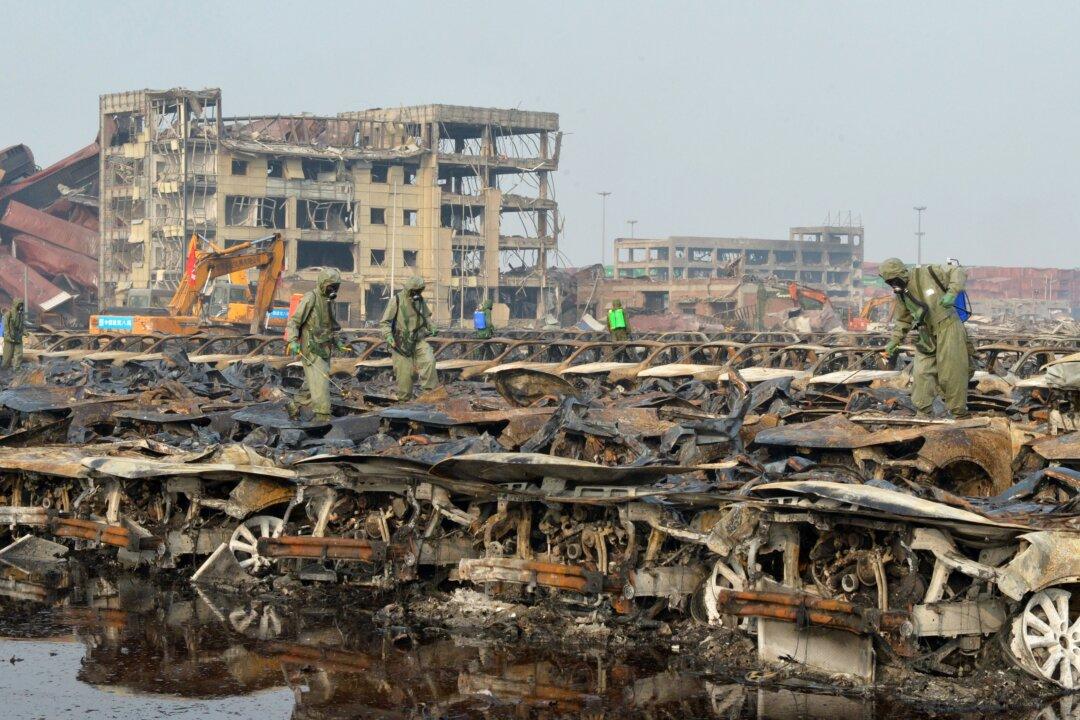The thousands of dead fish found on the riverbanks in Tianjin were killed by a common summer phenomenon, and not because the waters were contaminated by the toxic chemicals stored in a warehouse that recently exploded in a deadly fireball, says a Chinese official.
The official may very well be telling the truth—the Chinese authorities are famous for hushing up disasters—and that is the scary part.
On Aug. 12, a warehouse in the northern Chinese port city of Tianjin that held about 2,500 tons of hazardous chemicals exploded, killing over 100 people and injuring hundreds. Tianjin residents are increasingly angered by the Chinese authorities’ listless emergency response efforts, failure to provide sufficient information, and censorship efforts.
About a week after the blast, Chinese officials say that the toxic fallout, while severe in the blast site, is nonexistent in the adjacent areas. Chinese citizens are suspicious of the claims, and point to stinging rain and the masses of dead fish in Haihe River found on Aug. 19 as proof of widespread toxic contamination.
Deng Xiaowen, the head of Tianjin Environmental Monitoring Center, held a press conference on Aug. 20 to explain the considerable fish death: “During this time of year in Tianjin, especially during the hot days, the phenomenon of fish dying is quite common. Stagnant water is the main cause.”
Also, “because Tianjin is positioned at the end of nine rivers, the water conditions has never been good. When the temperature is high during summer, pollutants on the soil surface get washed down into the rivers during rain, causing the oxygen level in the water to decrease. Under these conditions, it is quite common to have dead fish at different rivers in Tianjin. Local residents call such phenomenon ‘Fan Keng,’ which means a lack of oxygen,” Deng added.
Deng’s explanation could hold water.
Previously, cyanide was suggested as an explanation for the die-offs.




